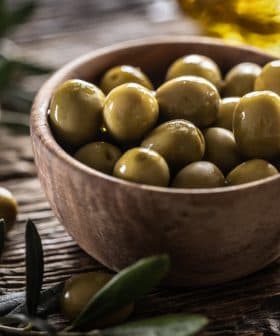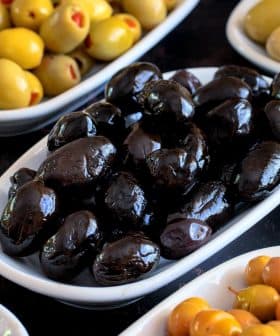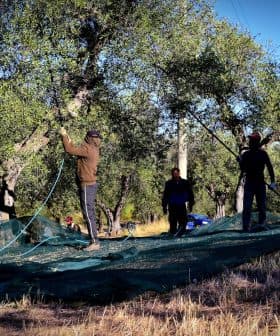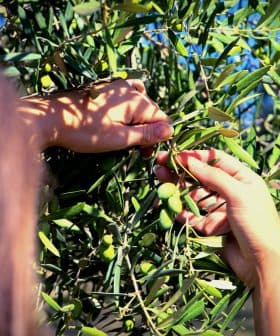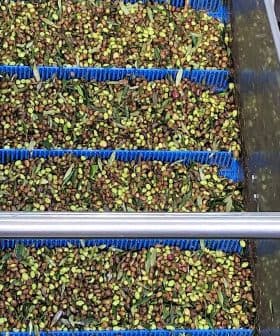Greek Producers Reject Restrictions on Use of 'Kalamata’ on Table Olives
The Greek national interprofessional association of table olives rejected a ruling that limited the use of the term ‘Kalamata Olives’ to olive producers of the Kalamon variety based in Messenia, which they believe will have devastating consequences on Greek olive producers and exporters. The association called for the Greek government to intervene and protect the country’s olive producers, manufacturers, and exporters to avoid any confusion in global markets.
The Greek national interprofessional association of table olives (Doepel) has rejected the ruling of the country’s Council of State, which stipulated that only olive producers of the Kalamon variety based in Messenia are allowed to use the term ‘Kalamata Olives’ to market their olives.
The court repealed a ministerial decree of 2018, which had effectively enabled producers of Kalamon olives from across Greece to also promote their Kalamon olives under the ‘Kalamata’ name, similarly to their counterparts in Messenia.
The court’s decision endangers the commercial future of the country’s primary agricultural product export.
“With regard to the 1149/2022 decision of the Council… the administrative board of the national Doepel… expresses its disappointment since the recorded devastating consequences and immeasurable damage inflicted on Greek table olive producers, manufacturers and exporters were not taken into consideration,” the interprofessional wrote in a letter sent to Olive Oil Times
“The court’s decision endangers the commercial future of the country’s primary agricultural product export, which has been exported since 1930 in quantities surpassing 73,000 tons and a value exceeding €220 million annually,” the interprofessional added.
See Also:Award Winners in Greece Discuss a Feverish Season Before a Bountiful HarvestDoepel said Greece’s exports of Kalamon/Kalamata table olives are expected to increase to 120,000 tons per annum due to the increasing number of new olive trees planted, mainly in the regions of Aetolia-Acarnania, Laconia and Fthiotida.
The interprofessional also analyzed the reasons it dismisses the court’s decision and considers it harmful to the country’s table olives sector.
“Greek exporting companies, including those based in Messenia, are destined for disaster [after the court’s ruling] since they will be blocked from international markets where their products are known under the variety name ‘Kalamata olives,’” they wrote.
“The olive producers of the specific variety, particularly those in Aetolia-Acarnania, Laconia and Fthiotida, who account for 90 percent [of the overall national production], are also headed towards a dead-end,” the interprofessional added.
The association asserted that a gap would form in the international market for olives due to the inability of Greek producers to export their Kalamon/Kalamata olives, with the possibility of other table olive-producing nations filling the opening.
“A Greek product cannot be exported to international markets, while third countries which have obtained olive tree samplings from Greece can freely export their olives as ‘Kalamata Olives,” they wrote.
The association added that other countries, including Egypt, Turkey, Peru, Australia and South Africa, will take the lead in big markets such as the United States and Canada, which account for 35 percent of Greek Kalamon/Kalamata olive exports.
Furthermore, Doepel claimed that the promotion of Kalamon olives produced outside of Messenia as ‘Kalamata Olives’ in no way affects the subsequent extra gain of Messenian producers from the Protected Designation of Origin quality label their olives bear.
“The producers and exporters of Messenia can trade their olives according to the accreditation they have received, which also demarcates the geographical location of the product,” the letter said.
In 1996, a PDO certification was approved by the European Union for Kalamon olives produced exclusively in the Messenia region.
“Exports of the Kalamon/Kalamata olives, which began in 1930, have long preceded the accreditation of olives of Messenian origin with the ‘PDO Elia Kalamatas’ label,” the association said.
The interprofessional also wrote that the Greek state has become part of the deadlock “by forcing the country’s olive exporters in 1954 to label their Kalamon olives as ‘Kalamata’ and mistakenly registering the name of an olive variety [Kalamata] as PDO without considering the repercussions.”
On the other hand, Messenian producers argue that the court’s ruling placed them at their rightful position in the country’s table olives sector.
“With the ministerial order of 2018, the state itself had legalized olives of the Kalamon variety produced anywhere in the world to be marketed as Kalamata olives,” Yiannis Pazios of Symepop, the association in support of PDO producers of Messenia, told Olive Oil Times in a recent interview.
“We are satisfied because our initial claims about using the Kalamata name have been vindicated by the court’s decision,” he added.
The national interprofessional association finally asked the Greek government to intervene and provide a solution.
“For all these reasons, we request quick action by the Ministry of Rural Development and Food to protect the country’s producers, manufacturers and exporters who account for 97 percent of the national production of Kalamon olives against the situation shaped by the Council’s decision,” they wrote in their letter.
“The highest priority matter is to absolutely not block any exports under the name ‘Kalamata olives’ to avoid any confusion in global markets,” they concluded.



